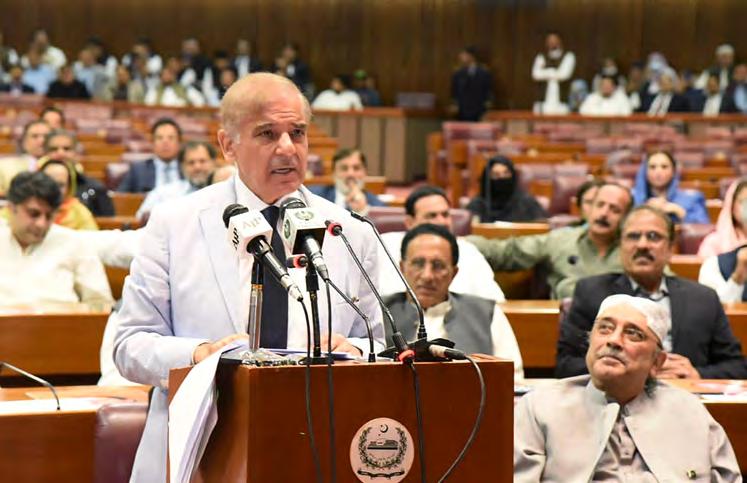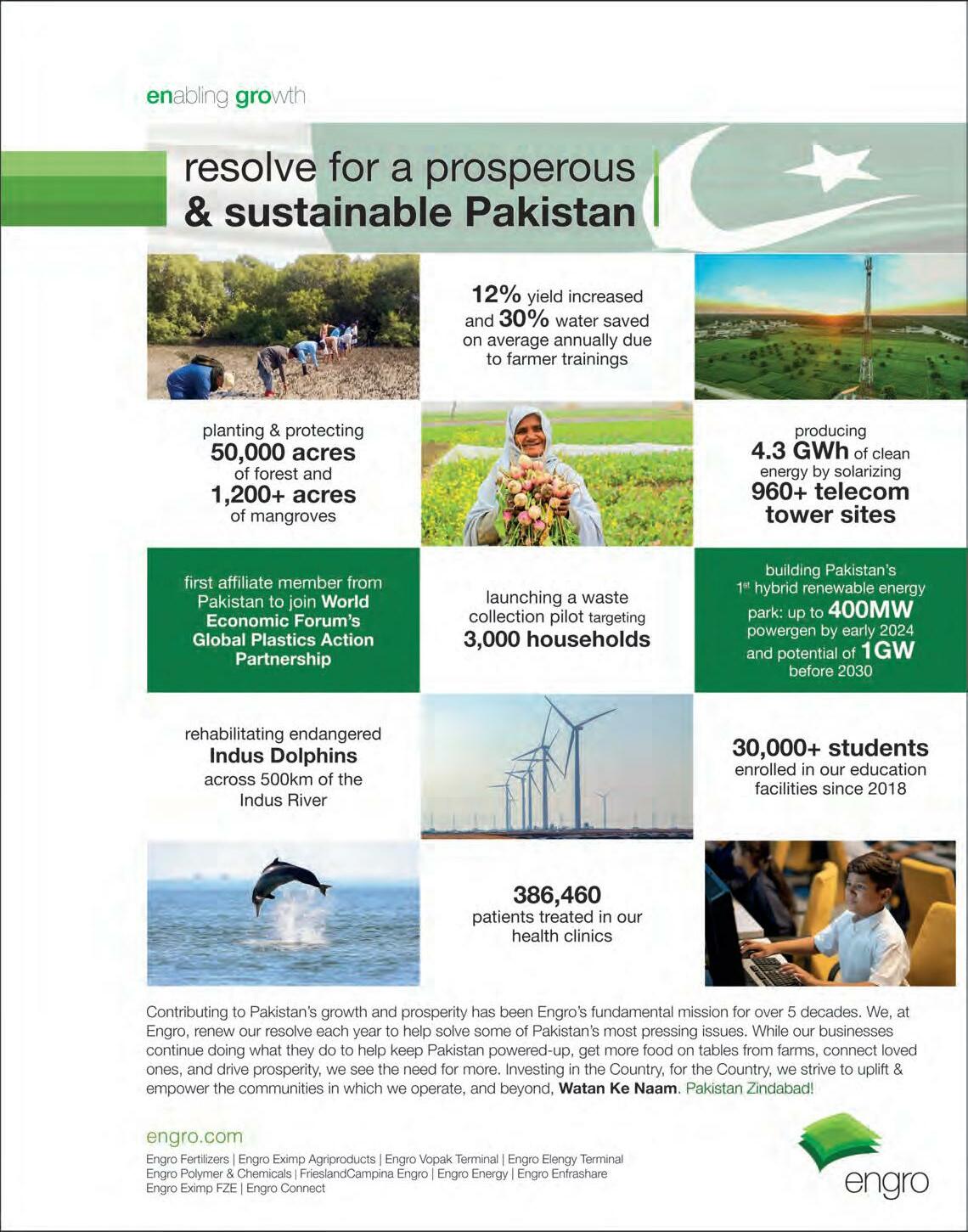
4 minute read
In seeking to come into power, did Shehbaz Sharif make a mistake?
By Khurram Hussain
It has been more than one month since the new government led by Shehbaz Sharif was sworn into office, and they are yet to make an important decision (as of this writing). Meanwhile the pressures on the economy are mounting. The exchange rate continues to slide, crossing Rs194 while the KSE 100 index has plummeted by more than 3000 points. Yields demanded by banks on government debt are touching 15 per cent in six month tenors, a full 275 basis points above the discount rate. These may not be indicators of the overall health of the economy, but taken together they certainly speak to plummeting confidence in the financial markets. Meanwhile the government has to continue shelling out massive amounts under the head of Price Differential Claims, with the latest bill coming in at Rs75 billion for the next fortnight. IMF talks are scheduled to start on Wednesday, but if the price caps on power and fuel prices that were imposed by former Prime Minister Imran Khan in his last weeks in power are not removed, it is a near certainty that the talks will yield few results. Through it all the Prime Minister treated us all to the rather unimpressive display of aggravated indecision by taking off for London, along with a large section of his cabinet, to “seek counsel” from his party chief Nawaz Sharif. As the deliberations there dragged on for a few days, Imran Khan ramped up his fiery rhetoric at home, holding a rally every day, and firing outrageous allegations of malfeasance, conspiracy, betrayal, and going so far as to say “it would be better to drop an atom bomb on the country rather than let these thieves back into power”. It is hard to find a more incendiary political moment in our history, at least in the past five decades. The time has now come to ask a simple but critical question. Did Shehbaz Sharif make a mistake in leading the vote of no confidence against Imran Khan’s government and seeking to come to power himself? It was no secret at that time that the economy is in deep trouble. In essence this is the bill coming due from the stimulus induced pandemic boom that Khan touted as his signature success. That boom was bound to end in a bust, and all the signs that this was building up were there from at least January of 2021, as the current account deficit ballooned, inflation began its second rout, and the exchange rate saw strong volatile swings from May 2021 onwards.
Advertisement
By September 2021 it was clear that the pandemic bubble was bursting when the State Bank reversed course and began applying the brakes through a nominal interest rate hike. In November and December it burst in earnest as two emergency hikes saw the policy rate climb by 250bps. The extreme rush with which the government of the time railroaded two crucial items of legislation – the State Bank bill and the tax exemptions withdrawal – followed by a hurried approach to float a Eurobond even before the IMF board meeting had taken place showed that there was mounting concern about the coming downturn.
We are now on the cusp of that downturn, and Imran Khan is in the enviable position of owning the boom while Sharif has to own the bust, pick up the pieces and set things right again. Everybody knew this is what was coming, including Sharif. Yet they powered ahead with the vote of no confidence. Having done so, they now own the moment and have no choice but to undertake the steps necessary to rectify the deficits that are eating away the economy’s viability.
The situation is unprecedented in one important respect. This is the first time we are seeing an incoming government facing the prospect of undertaking a painful economic adjustment in the run up to an election. In every such situation in the past, incoming governments had to undertake an adjustment after coming to power. They blamed the previous government for the resultant pain, and after two to three years, abandoned the path of adjustment to pump growth till the end of their term.
Nobody has had to go into an election immediately after administering a painful adjustment that sees prices of essential items rise rapidly as well as unemployment. This is the predicament the Sharif government is now facing.
However difficult the situation may be, there is no getting around the fact that they knew this was to be their lot after coming into power. There is no excuse for dithering or indecision now. Having sought power at all costs, Sharif must now prove that he has what it takes to deliver. The cost of failure at this point is very high.









